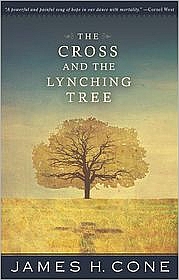 In Jame H. Cone’s new book, The Cross and the Lynching Tree, (Orbis, 2011) white, Christian theologians are taken to task for failing to make the connection between the cross and the lynching tree. Cone references Acts 10:39 – “They put him to death by hanging him on a tree” – then details the pervasive history of lynching in the U.S. which occurred in virtually every state. Lynching emerged immediately after the emancipation and was a way for the white population to terrorize and control the newly freed black population.
In Jame H. Cone’s new book, The Cross and the Lynching Tree, (Orbis, 2011) white, Christian theologians are taken to task for failing to make the connection between the cross and the lynching tree. Cone references Acts 10:39 – “They put him to death by hanging him on a tree” – then details the pervasive history of lynching in the U.S. which occurred in virtually every state. Lynching emerged immediately after the emancipation and was a way for the white population to terrorize and control the newly freed black population.
Cone takes on theological giant Reinhold Niebuhr (Chapter Two) for Niebuhr’s extensive reflections on the cross, white supremacy and racism – yet noting Niebuhr’s failure to link Christianity and the cross over against white supremacy and racism. Later Cone quotes Niebuhr, “‘People without imagination really have no right to write about ultimate things'” a condemnation of Niebuhr’s white, racist theology itself (94).
Cone writes, “Walter White, national secretary of the NAACP and the author of several novels and the important book Rope and Faggot, indicted Christianity for creating the fanaticism that encouraged lynching. ‘It is exceedingly doubtful if lynching could possibly exist under any other religion than Christianity,’ he [White] wrote. ‘Not only through tacit approval and acquiescence has the Christian Church indirectly given its approval to lynching law . . ., but the evangelical Christian denominations have done much towards creation of the particular fanaticism which finds its outlet in lynching'” (112). Take, for example, the Ku Klux Klan (KKK), a white supremacy organization promoting racism and committing acts of terrorism that openly identifies as Christian. In fact, a cross burning occurred in April of this year – right here in Minnesota.
Lest we mistakenly think that lynching involved only black men, in Chapter Five Cone details similar violence against black women. “Although women constitute only 2 percent of blacks actually killed by lynching, it would be a mistake to assume that violence against women was not widespread and brutal. Black women were neither incidental objects of white vigilante violence nor marginal participants in the black resistance against it. Like black men, they were tortured, beaten and scarred, mutilated and hanged, burned and shot, tarred and feathered, stabbed and dragged, whipped and raped by angry white mobs” (122).
Quoting Ida B. Wells, “pioneer of the anti-lynching crusade” Cone writes ‘Why is mob murder permitted by a Christian nation?’ she asked. White Christianity was not genuine because it either openly supported slavery, segregation, and lynching as the will of God or it was silent about these evils” (131). “As far as she [Wells] was concerned, white Christianity was a counterfeit gospel – ‘as phony as a two-dollar bill,’ as blacks often said in Bearden” (133). “She therefore challenged white liberal Christians to speak out against lynching or be condemned by their silence” (131).
Cone charges white Christianity: “White conservative Christianity’s blatant endorsement of lynching as part of its religion, and white liberal Christians’ silence about lynching placed both of them outside of Christian identity. I could not find one sermon or theological essay, not to mention a book, opposing lynching by a prominent liberal white preacher” (132). Further, “White theologians in the past century have written thousands of books about Jesus’ cross without remarking on the analogy between the crucifixion of Jesus and the lynching of black people. One must suppose that in order to feel comfortable in the Christian faith, whites needed theologians to interpret the gospel in a way that would not require them to acknowledge white supremacy as America’s great sin.” (159).
Cone brings to our attention the sexual violence of slavery still evident in the ongoing genetic linkage of whites and blacks. “What happened to blacks also happened to whites. When whites lynched blacks, they were literally and symbolically lynching themselves – their sons, daughters, cousins, mothers and fathers, and a host of other relatives. Whites may be bad brothers and sisters, murderers of their own black kin, but they are still our sisters and brothers. (italics author’s 165). “We were made brothers and sisters by the blood of the lynching tree, the blood of sexual union, and the blood of the cross of Jesus” (166).
I believe Cone’s book can be summarized, in part, with this quote, “We were made brothers and sisters by the blood of the lynching tree, the blood of sexual union, and the blood of the cross of Jesus” (166). Cone is correct that white Christianity utterly fails as a religion in its refusal to oppose or even acknowledge chattel slavery, on-going systems of white supremacy and the restitution required to begin healing both.
You may also like “Minnesota Nice” & Cross Burning.